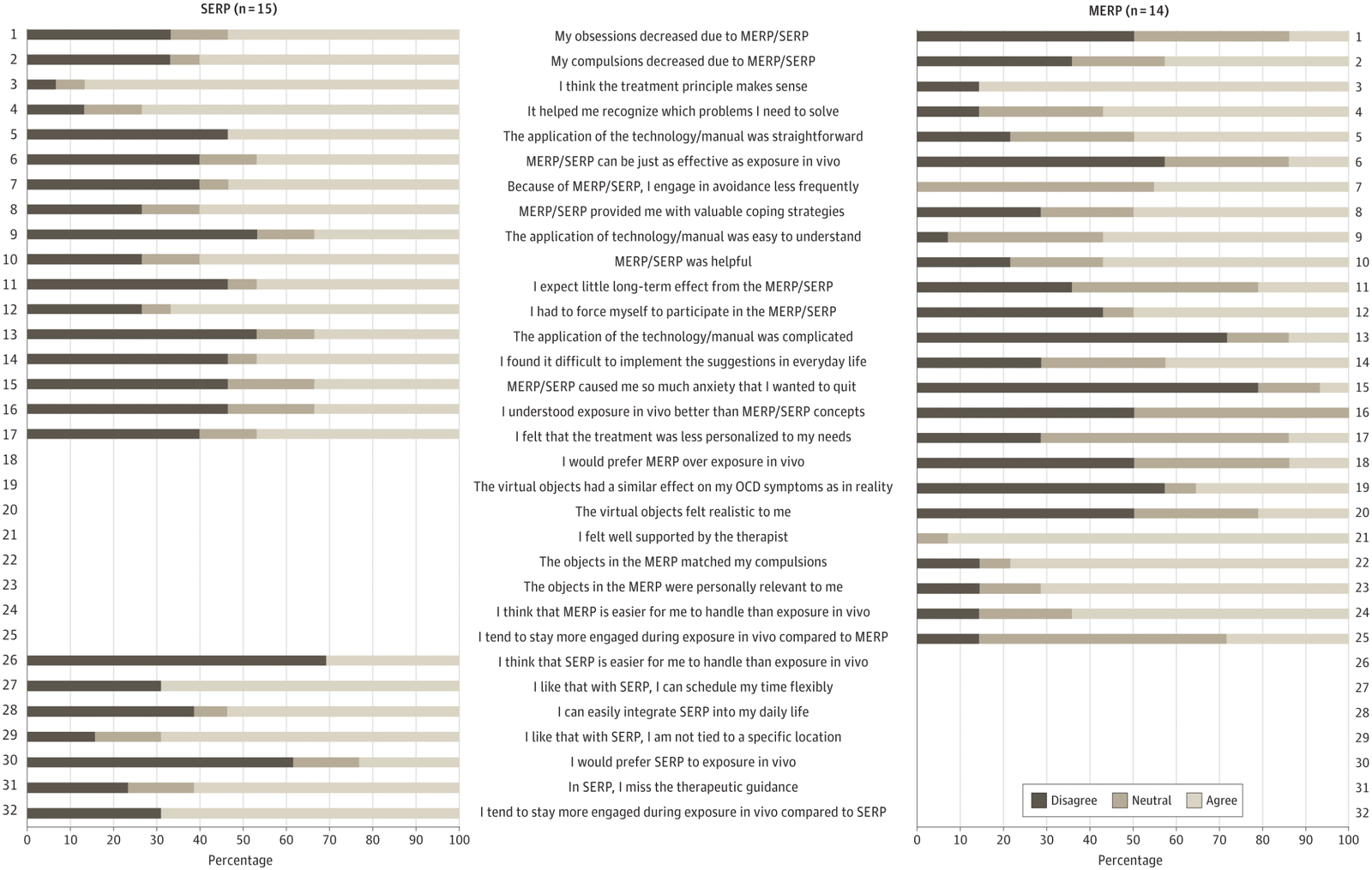A recent clinical trial published in JAMA Network Open explored the effectiveness of mixed reality exposure and response prevention therapy (MERP) for patients with contamination-related obsessive-compulsive disorder (OCD). This innovative approach integrates virtual elements into real-world environments, aiming to reduce patients’ symptoms.
The study involved 36 participants, split evenly between two groups: one receiving MERP and the other undergoing self-guided exposure and response prevention therapy (SERP). The average age of participants was 35, with a predominance of women (66.7%). Before treatment, participants displayed moderate to severe OCD symptoms, as measured by the Yale-Brown Obsessive Compulsive Scale (Y-BOCS).
Findings indicated that those who underwent MERP showed a remarkable reduction in OCD symptoms. The average Y-BOCS total score decreased from 27.86 to 24.71 post-treatment, compared to a smaller reduction from 23.40 to 21.93 in the SERP group. The difference in improvement between the two methods was statistically significant, with a p-value of 0.042, indicating that MERP was more effective in alleviating symptoms.
The trial also assessed participants’ subjective experiences with both therapies. Those in the MERP group reported feeling more engaged and less anxious during exposure tasks compared to those in the SERP group. This suggests that the immersive nature of mixed reality may enhance therapeutic engagement, which is crucial for effective treatment in OCD.
Furthermore, follow-up assessments conducted three months after treatment demonstrated sustained symptom reduction in the MERP group. Their Y-BOCS scores remained significantly lower than those of the SERP group, reinforcing the potential long-term benefits of this therapy.
The study’s results contribute to the growing body of research on the application of virtual reality in mental health treatment. Prior studies have shown that virtual reality exposure therapy can effectively reduce anxiety and related disorders. This trial builds on that foundation, demonstrating specific advantages for those suffering from OCD.
In summary, the integration of mixed reality into exposure therapy presents a promising advancement in the treatment of OCD. The findings underscore the potential for MERP to effectively target contamination-related fears, offering patients a more engaging and beneficial therapeutic experience. As mental health professionals continue to seek innovative approaches, MERP could become a valuable tool in the fight against OCD.



